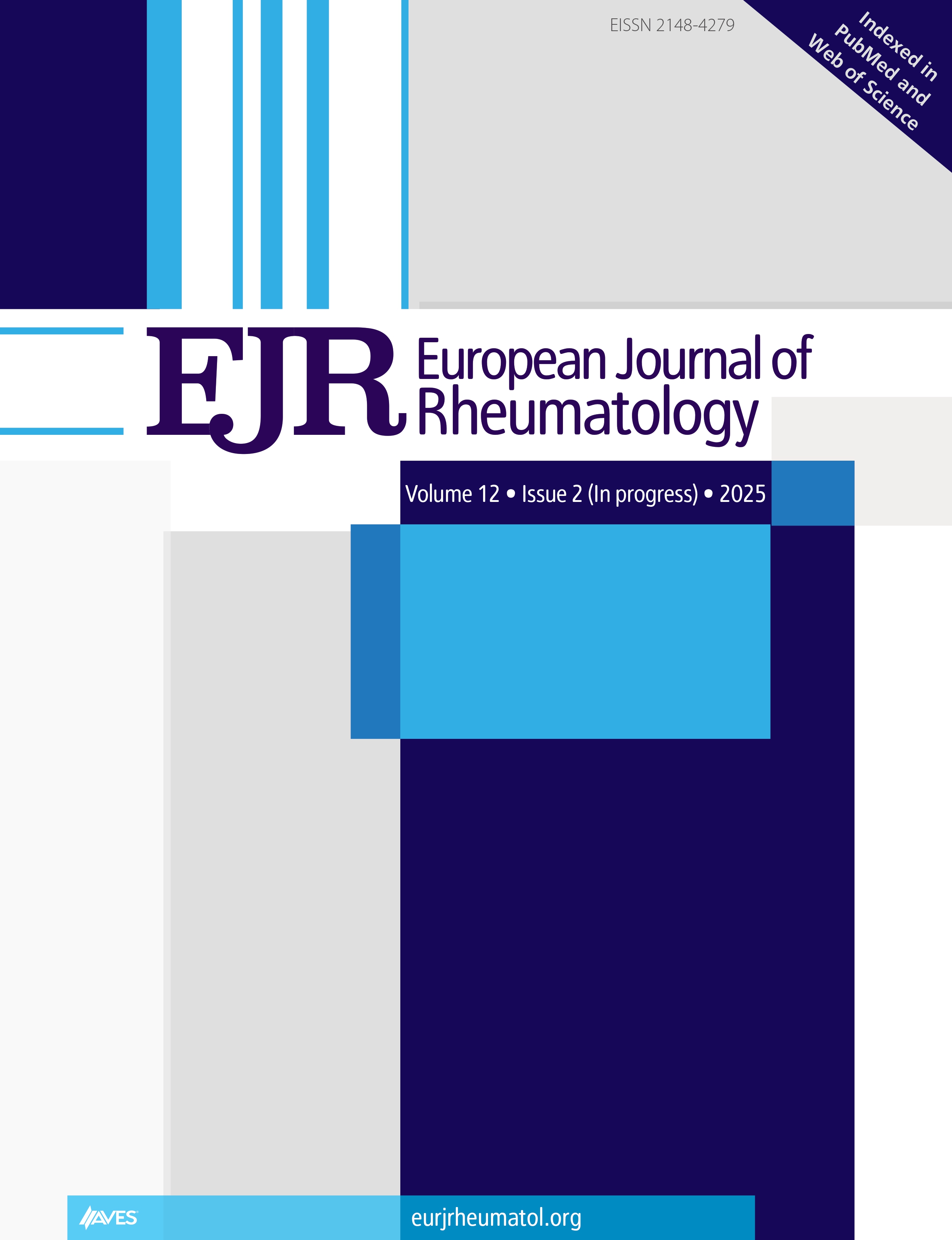Abstract
Objective: The growth and differentiation factor 5 (GDF5) gene is recognized for its role in the development, repair, and maintenance of cartilage and bone. The present case-control study was conducted to detect the genetic association between GDF5 (+104T/C) single-nucleotide polymorphism (SNP) and primary knee osteoarthritis (KOA), as well as the possible association of SNP with the severity of KOA.
Material and Methods: The study included 50 patients with primary KOA and 50 healthy control subjects. The severity of the disease was assessed by using the Kellgren-Laurence (K-L) grading system and aided by the Western Ontario & McMaster Universities Osteoarthritis Index (WOMAC) score, visual analog scale (VAS) score, and tenderness score. The genetic association of the SNP with primary KOA was assessed by means of the TaqMan® allelic discrimination technique.
Results: The radiological assessment of patients according to the K-L grading system revealed a statistically significant association between the wild-type (TT) genotype and disease severity in both the right and left knees (p=0.049). The frequency distribution of patients with VAS score ≤6 was significantly higher in patients carrying the TT genotype (p=0.005) as compared to the CT and CC genotypes. The mean WOMAC score was significantly higher in patients carrying the TT genotype as compared to patients carrying the CC and CT genotypes (p=0.017). No statistically significant association was detected on comparing the frequency distribution of allele and genotype frequencies of the SNP in patients and healthy controls.
Conclusion: The results of the current study revealed a possible genetic association between GDF5 (+104T/C) SNP and the severity of KOA, which might be of benefit for the detection of patients with a high risk for disease progression. The present study did not detect an association between the SNP and development of KOA.



.png)